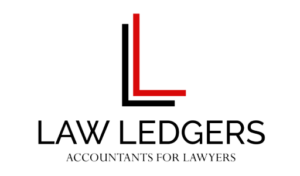Can A Lawyer Delegate The Authority To Sign Escrow Checks?
The question of whether an attorney is permitted to delegate the responsibility of signing escrow checks to a bookkeeper is a complex one. On one hand, attorneys have a professional obligation to ensure that they exercise due diligence and maintain a high standard of care when it comes to the management of client funds. On the other hand, attorneys are also allowed to delegate certain responsibilities to other professionals, such as bookkeepers.
The short answer is “yes,” an attorney is permitted to delegate the responsibility of signing escrow checks to a bookkeeper in appropriate circumstances, such as where an authorized signatory who is a New York lawyer personally reviews and approves the issuance of the check with their digitized signature.
Ethics Opinions
In 1997, the New York State Bar Association issued Opinion 693, which expressed the view that a “lawyer may allow a paralegal to use a signature stamp to execute escrow checks from a client trust account so long as the lawyer supervises the delegated work closely as provided in this Opinion and exercises complete professional responsibility for the acts of the paralegal.” The Opinion explained:
Although it is clear that only a lawyer may control the lawyer’s client escrow account and be a signatory of it, the Rule does not address whether a lawyer may delegate the task of signing his or her name to escrow account checks to others, and if so whether a signature stamp can be used for that purpose. Based on the analysis of proper delegation in our previous opinions, we believe that it is ethically permissible for a lawyer to authorize a paralegal to make use of the lawyer’s signature stamp on checks drawn from a special account at closings under certain conditions and with proper controls. As with the rest of a paralegal’s duties at a real estate closing, N.Y. State 677, the lawyer must consider in advance how the paralegal will use the signature stamp – including approving the purpose of the anticipated payments to be made by such checks, the nature of the payee and the authorized dollar amount range for each check to be issued – and review afterwards what actually happened to assure that the delegation of authority has been utilized properly. As a practical matter, compliance with these restrictions will limit the use of the signature stamp by a paralegal to those circumstances in which the lawyer can reliably forecast events at the closing. Attorneys must be aware that responsibility for client funds may not be delegated, and attorneys authorizing paralegals to use signature stamps on checks drawn from escrow accounts are “completely responsible” to the client for any errors or misuse of the stamp. N.Y. State 677; DR 1-104. Attorneys must take steps to safeguard the use of the signature stamp to avoid any misappropriation of client funds.
NYSBA Opinion 693
In Opinion 1114 (2/9/17), the New York State Bar Association expressed the view that attorneys may electronically sign checks issued from their law firm’s “special,” trust or IOLA account, provided that an authorized signatory who is a New York lawyer personally reviews and approves the issuance of the check with his or her digitized signature. The opinion addresses several questions:
- Can a law firm utilize digitized signatures on checks issued from its IOLA account instead of manual signatures?
- Can the approval process for checks issued from the law firm’s IOLA account use a batch process to authorize digitized signatures?
- Does Rule 1.15(e) of the New York Rules of Professional Conduct specify how a trust or special account check may be signed?
- What is encompassed by the term “signatory” in Rule 1.15(e)?
- Can the use of digitized signatures on checks issued from a law firm’s IOLA account comply with the fiduciary obligation that attorneys have with respect to client funds?
In relevant part, Opinion 1114 explained:
8. Rule 1.15(e) in New York provides that only a New York attorney may be an authorized signatory, but it does not specify how a trust or special account check may be signed. Rule 1.0(x) defines what constitutes a writing for purposes of Rules that require the client’s written consent. It was amended effective January 1, 2017 to include electronic records within the meaning of a writing. As amended, Rule 1.0(x) provides: “A ‘signed’ writing includes an electronic . . . process attached to . . . a writing and executed or adopted by a person with the intent to sign the writing.” (Emphasis added.) As the New York State Bar Association’s Committee on Standards of Professional Conduct (“COSAC”) explained when it proposed this change, “COSAC recommends clarifying the definition of ‘writing’ to make clear that it encompasses evolving forms of electronic communications.” However, the term we must interpret here is not “writing” but “signatory.” Consequently, the recent amendment is instructive but not dispositive.
9. In N.Y. State 693 (1997), this Committee stated that it was permissible for a lawyer, as part of a real estate closing, to delegate to a paralegal the task of signing the lawyer’s name on an escrow account check utilizing a rubber stamp, as long as the lawyer supervised the delegated work closely. The rationale underpinning that opinion was that it was the attorney, not the paralegal, who ultimately approved the transaction – the attorney was merely delegating the task of affixing the signature for a discrete and limited purpose.
10. Here, no delegation would be involved. Therefore, if the law firm’s procedures for authorizing checks from the special or trust account and for affixing the digitized signature of each authorized signatory assure that only an authorized signatory or signatories may initiate these steps, and if using the MICR signature renders the check negotiable within the meaning of banking laws and regulations, then Rule 1.15 neither requires a law firm to use a “wet ink signature” nor prohibits a law firm from using electronic or digitized signature media such one affixed by an MICR printer.
11. The law firm also must ensure that the electronically-generated records of the special or trust account are maintained in accordance with Rule 1.15(d).
NYSBA Opinion 1114
ABA Guidelines
The ABA Model Guidelines on Paralegal Services do not prohibit delegation of accounting-related work:
GUIDELINE 2: Provided the lawyer maintains responsibility for the work product, a lawyer may delegate to a paralegal any task normally performed by the lawyer except those tasks proscribed to a nonlawyer by statute, court rule, administrative
rule or regulation, controlling authority, the applicable rule of professional conduct of the jurisdiction in which the lawyer practices, or these guidelines.GUIDELINE 3: A lawyer may not delegate to a paralegal:
(a) Responsibility for establishing an attorney-client relationship.
ABA Guidelines
(b) Responsibility for establishing the amount of a fee to be charged
for a legal service.
(c) Responsibility for a legal opinion rendered to a client.
Separately, the ABA has maintained certain Guidelines for client trust account recordkeeping in an effort to keep pace with the electronic revolution in the banking industry. The Model Rules for Client Trust Account Records replace the Model Rule on Financial Recordkeeping that had been in place since 1993. The new rules provide comprehensive guidelines for lawyers, which accommodate current standards of practice while continuing to protect the interests of clients. The Model Rules address general record-keeping requirements for all lawyers holding client funds and outline specific record-keeping requirements for electronic transfer of funds. The new rules also cover trust account safeguards and the availability of records, noting, among other things, that:
- Electronic banking transactions must be supported by an electronic recordkeeping system that accurately and reliably tracks all transactions in the client trust account.
- The system must have adequate security measures in place to ensure the confidentiality, integrity, and availability of electronic records.
- The system must be capable of generating a report that provides a clear and accurate description of each transaction, including the date, amount, payee, and client matter number.
- The report must be reconciled with the bank statement on a monthly basis to ensure that all transactions have been accurately recorded.
- Any discrepancies or errors must be promptly identified and resolved.
- The system must provide a clear audit trail that allows for the reconstruction of each transaction from its inception to its final disposition.
- The system must be able to generate a list of all outstanding checks and deposits to facilitate the monthly reconciliation process.
- The system must be able to generate a report that provides a current balance of the client trust account and a list of all client trust balances.
- The system must be able to generate a report that identifies all transactions in excess of a predetermined threshold.
- The system must have backup and recovery procedures in place to ensure that electronic records are not lost or destroyed in the event of a system failure or other disaster.
There Are Hard Limits To Delegation
Despite the various guidance, courts have disciplined lawyers who have excessively delegated authority to staff. For example:
- Matter of Rozenzaft, 143 AD3d 65, 69 (2d Dept. 2016) – “More specifically, he allowed his two paralegals to conduct hundreds of real estate closings, without his supervision, and went so far as to allow them to use his signature stamp and/or sign his name on real estate documents and to issue checks from his operating and escrow accounts.”
- Matter of Brown, 133 AD3d 7, 9 (1st Dept. 2015) – “By making her accountant, a nonattorney, an authorized signatory on the escrow account, respondent violated rule 1.15 (e), and we therefore confirm the Hearing Panel’s recommendation that we sustain charge two.”
- Matter of Kaplan, 113 AD3d 184, 185 (1st Dept. 2013) – “allowing his nonlawyer spouse to be a signatory on his IOLA account in violation of rule 1.15”
- Matter of Shtindler, 106 AD3d 173, 176 (2d Dept 2013) – “Charge six alleges that the respondent failed to adequately supervise her paralegal, in violation of former Code of Professional Responsibility DR 1-104 (c) and DR 1-102 (a) (7) (22 NYCRR 1200.5 [c]; 1200.3 [a] [7]). From January 2007 through 2008, the respondent authorized her paralegal to issue and sign checks from her escrow account. The respondent failed to review all of the checks that the paralegal issued from her escrow account.”
Please note that the information provided on this website is for general informational purposes only and is not intended as legal or tax advice. The information is subject to change, and it is important to consult a specialist before making any decisions. Law Ledgers provides accounting services to New York lawyers and law firms, including escrow protection, tax advice and bookkeeping administration. Contact us today for personalized support.









